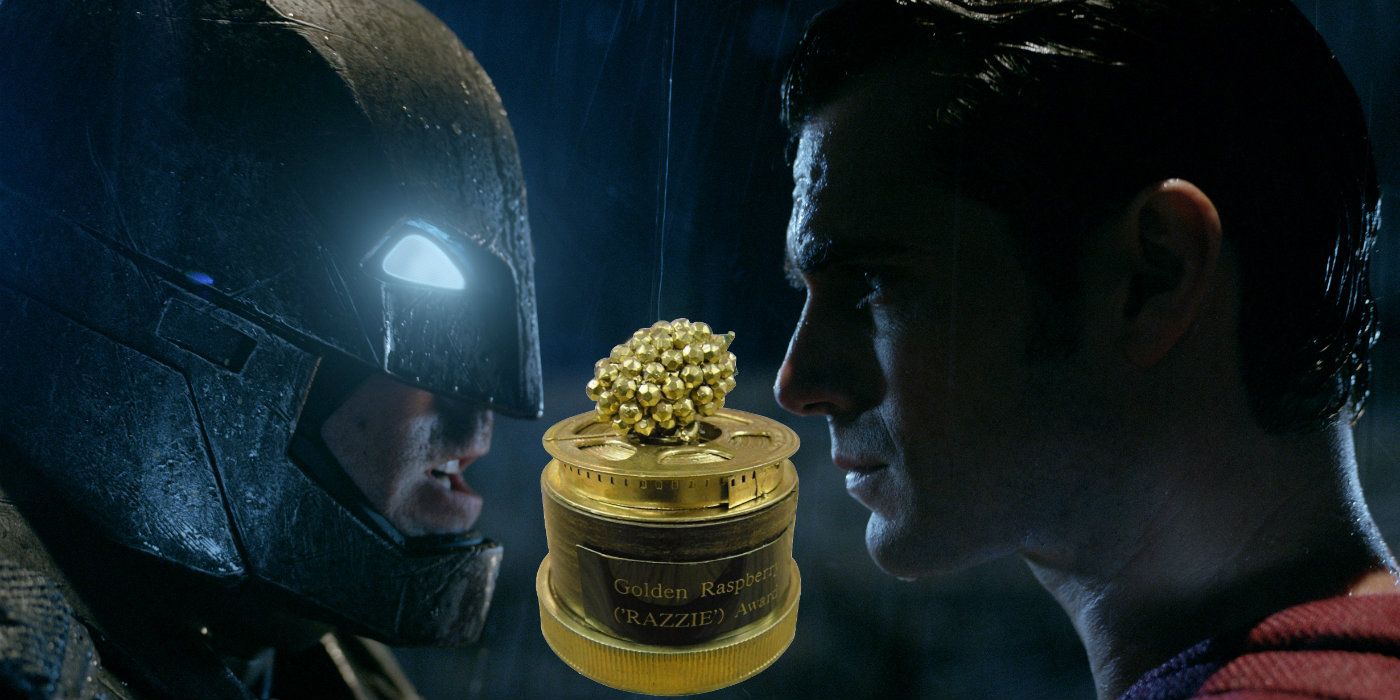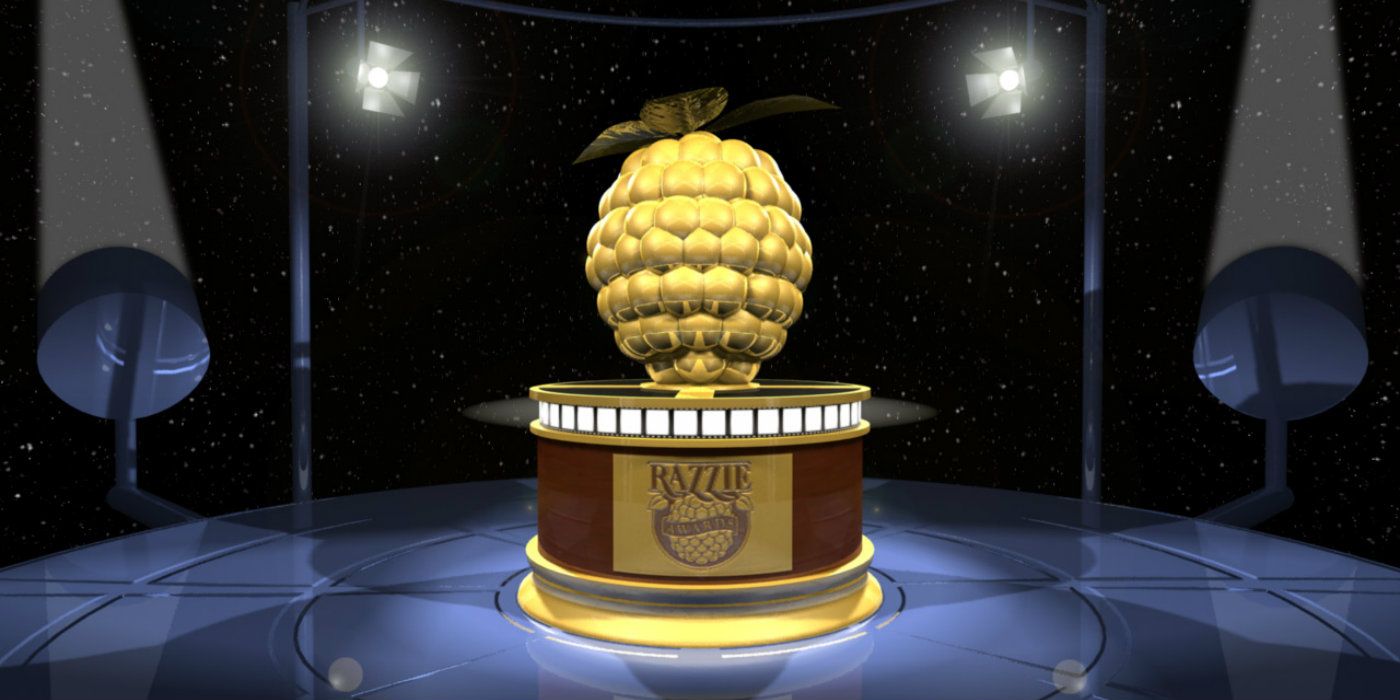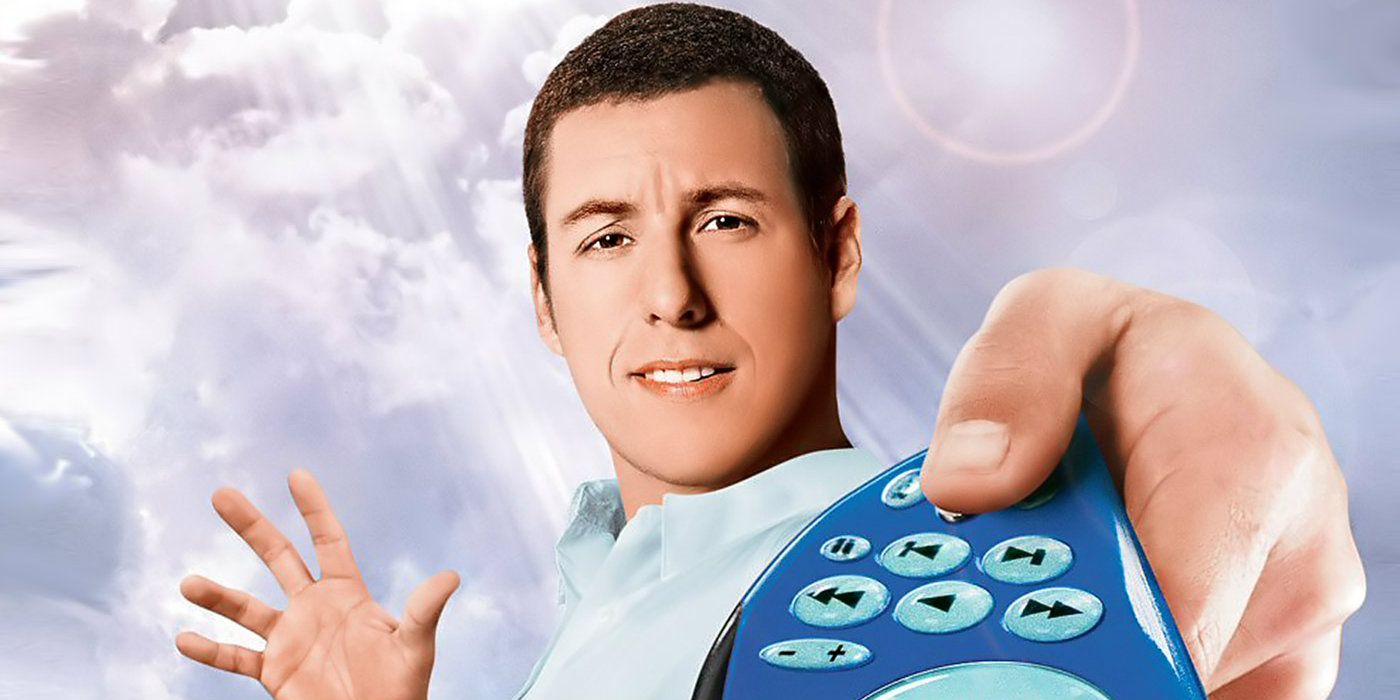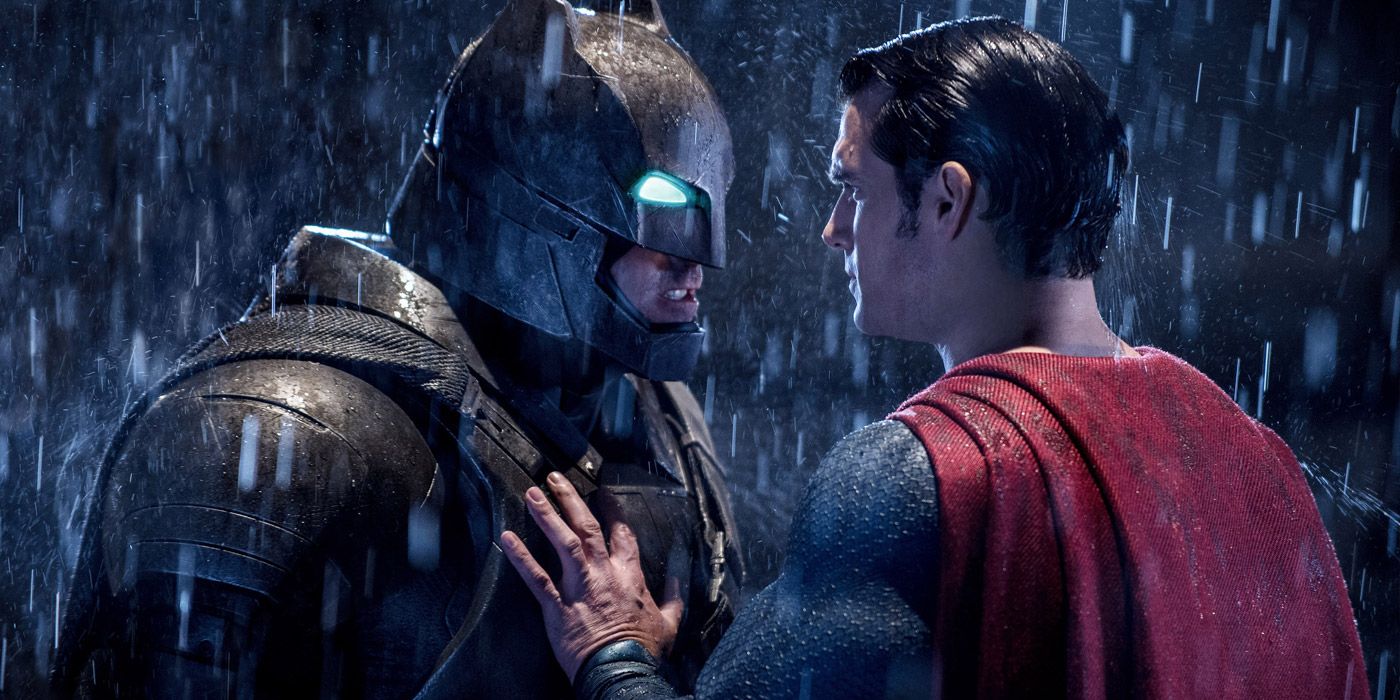[NOTE: The following is a counter-point to our 'The Razzies Aren't Fun Anymore' editorial.]
-
The Golden Raspberry Awards is probably the Hollywood awards season "institution" that hardcore film-culture types have the least regard for. Originally created as a party joke by publicist John J.B. Wilson in 1981, the annual parade of "Worst" awards is often viewed as a toothless act of pseudo-satire; purporting to serve as a "check" on the film industry's self-aggrandizement but instead effectively rubber-stamping whatever already-forgotten underperforming underdogs that the industry, mainstream press and ticket-sales have already determined to be the "worst" films of any particular year.
To be fair, hitting the Razzies for lacking substance is a bit beside the point, conceptually. The "show" started as bit of after-party entertainment at J.B. Wilson's annual Oscar viewing get-together, and only became the object of public interest when the Los Angeles Times did a human interest story on the spectacle of local industry players handing out "Worst" prizes for a laugh. However, that initial media attention turned the joke into an institution which now holds a formal awards ceremony the day before the Oscars and is thus very much a part of the annual movie awards season - and to many, that's part of the problem.
Whether they asked for it or not, The Razzies have been elevated to a fairly rareified stature as the counter-Oscar awards show - effectively giving them a now decades-old authoritative power as the film industry's official bad movie executioner. The Razzies' position and platform offer the organization a chance to "speak the truth" by calling out the industry for its most egregious flaws; not just wasting millions (billions?) on would-be blockbusters (though that's certainly welcome), but the pomposity of the awards season itself - the self-important pretense of "Oscar Bait", the appeals to mainstream socio-political respectability and the (distinct) predictability of certain nominations.
But instead, with rare exception (James Coco and Amy Irving are the only people to have been nominated for a Razzie and an Oscar for the same part) The Razzies can be relied upon to fit their nominations comfortably into the same thoroughly-predictable "year-in-film" narrative that the Academy of Motion Picture Arts and Sciences do. It's rarely a surprise which films will win or be nominated; just look for money-losing releases that even people who see maybe two movies a year "know" were bombs because they're so widely dismissed by the public at large (think Howard the Duck, Leonard Part 6, Star Trek V: The Final Frontier). There have been a number of commercially-successful films that have either won and/or been nominated for Razzies over the years (last year, for example, Fifty Shades of Grey was a massive box office hit that won multiples Razzies), but those same movies have typically been shredded by film critics well before the ironic gold berry statue is handed out.
There's certainly nothing "wrong" with lazy comedy and The Razzies are of course free to "reward" whomever they want. The event still feels like a bit of a missed opportunity for the hunter with the biggest gun to spend its ammo on the weakest, easiest targets. If the goal here is to ruffle Hollywood's stuffed shirts, wouldn't taking the wind out of an audience-beloved weepie (think Forrest Gump) or an arthouse prestige piece (think Nocturnal Animals) have greater effect than tossing one more egg at something "everyone" already agrees is bad? Nevermind how history can change the broad understanding of a film; for example, Stanley Kubrick's The Shining received two Razzie nominations, while Paul Verhoeven's Showgirls was dubbed the "Worst Picture" of 1995 - yet in the present, the film is typically seen as more of a subversive cult-classic (whose director just helmed the freshly Oscar-nominated Elle).
This is why it's arguably a surprise to see Batman V Superman: Dawn of Justice making a strong showing at this year's Razzies, with several nominations to its credit. Also making an unexpectedly strong showing, considering The Razzies have historically avoided political controversy, is the film Hillary's America: The Secret History of The Democratic Party - an election-season takedown "documentary" from convicted campaign-finance fraudster Dinesh D'Souza (who also earned a Worst Actor nod "as himself" for the film).
Granted, the overall critical response to Batman V Superman was negative, so its Razzie nominations are not completely out of left field. Still, it's rare for the Razzies to invite any kind of real blowback - and nominating a movie as controversial and divisive amongst superhero movie fans as Batman V Superman, is a move that will almost certainly draw blowback. The Golden Raspberry Awards may not have changed much over the last decade, but Hollywood has: the scene is now dominated by Cinematic Universes where long-term, devoted fan engagement is part of the release strategy. The Marvel Cinematic Universe, which popularized the current "shared universe" trend in Hollywood, has yet to release a film that earned worse than a mixed-to-positive response. Hence, Batman V Superman is the first superhero "universe" movie to be nominated for Worst Picture at the Razzies in the (almost) decade that has passed since Iron Man laid the foundation for the era of Cinematic Universes, in 2008.
It almost goes without saying that those moviegoers who are, to some degree or another, pro-Batman V Superman won't be impressed by the Razzies nominating the superhero film for so many "awards." The same goes for those who like or agree with the far-right conservative political outlook of Hillary's America. In either case, this arguably marks the first time in, well, the history of the Razzies that the Golden Raspberry folks can be said to have taken a "stand" on something that will actually prove to be controversial, to some degree.
That said, it remains to be seen how much heat The Razzies actually take for nominating these movies - since again, the Golden Raspberry organization is in the odd position of being both being taken seriously and not being taken seriously at all. Only time will tell - but for the first time in ages, The Golden Raspberry Awards feels almost topical; not just because of potential fan blowback, but because it could be read as representing a genuine "pushback" against Hollywood superhero movie domination and perhaps also a newly-empowered political force. And that's the kind of unexpected development awards season rarely affords.




